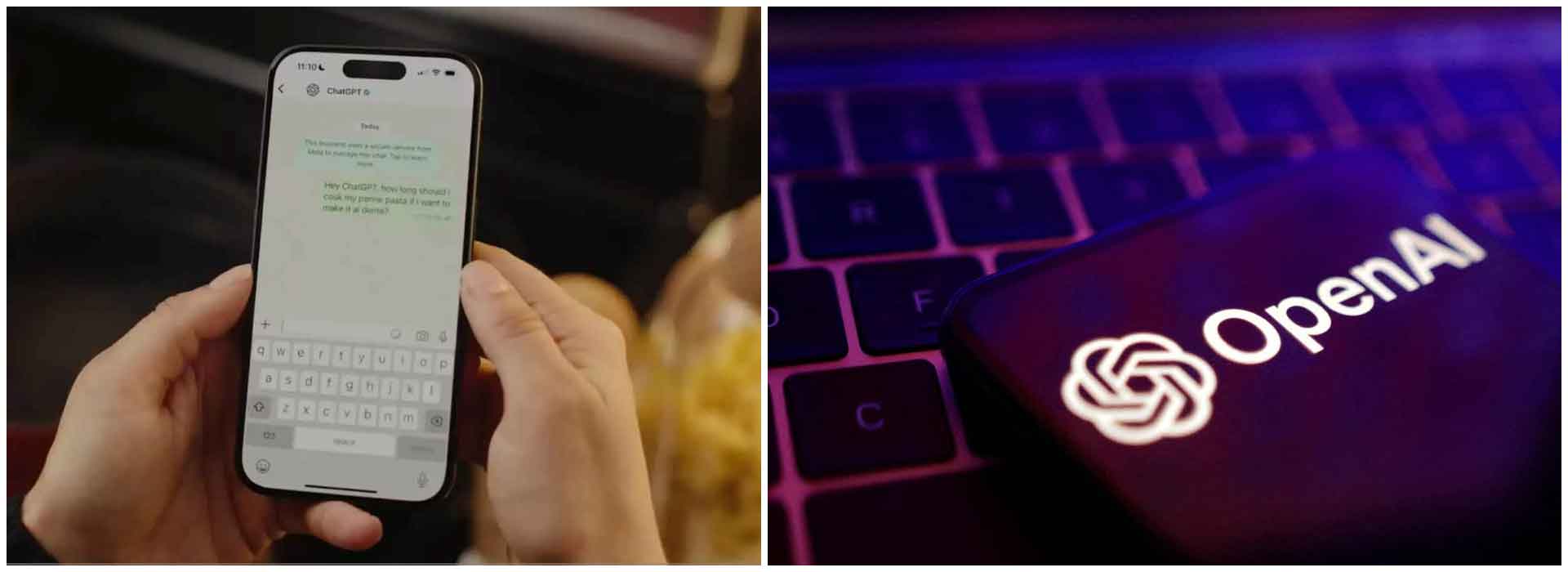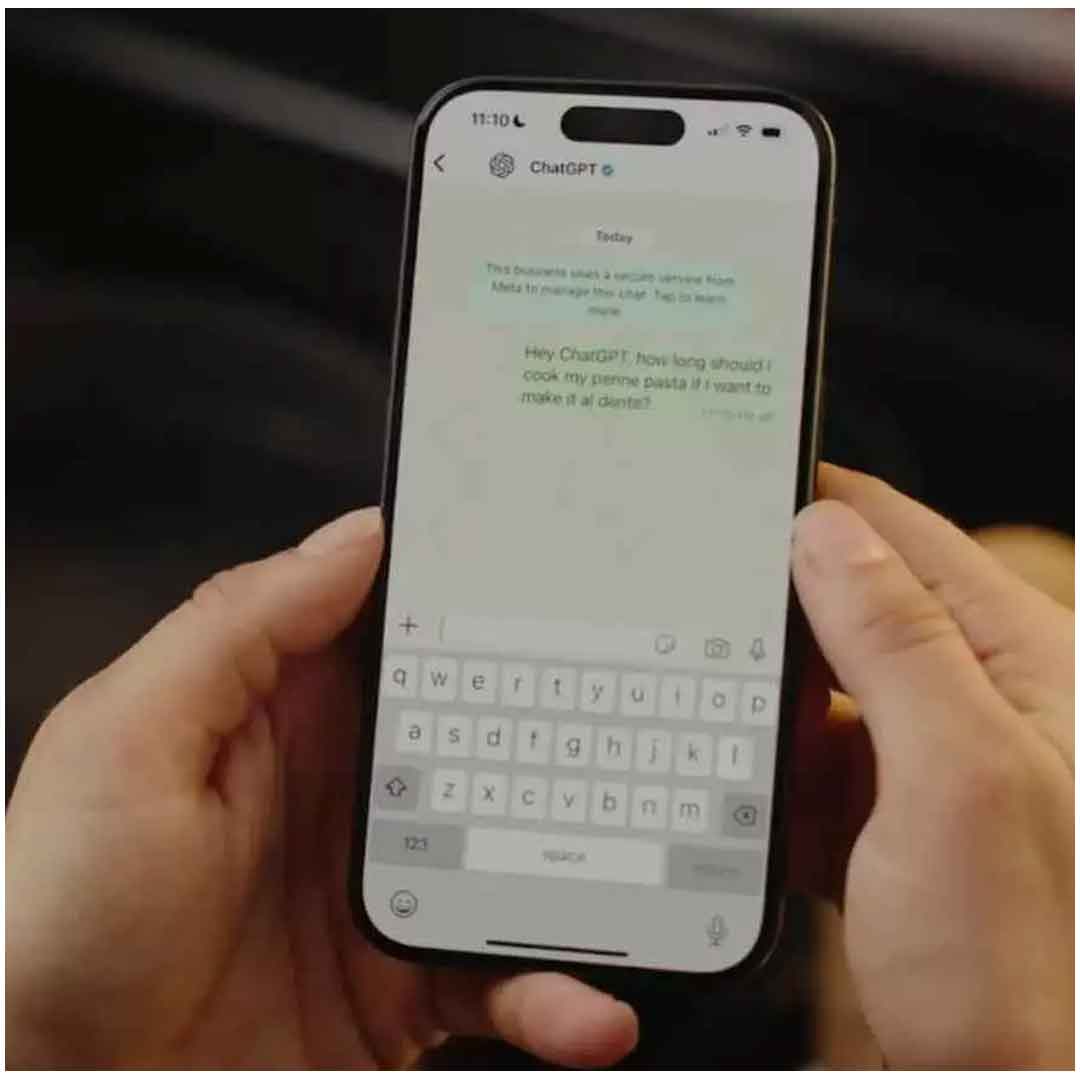ChatGPT Launches on WhatsApp and Landline Phones for Users in the US and Canada

In a groundbreaking move that’s set to transform the way we interact with artificial intelligence, OpenAI’s ChatGPT has made its debut on WhatsApp and landline phones for users in the US and Canada. This development marks a significant step forward in making AI technology more accessible, practical, and inclusive for everyday use.
Whether you’re a tech enthusiast, a multitasking professional, or someone who prefers traditional methods of communication, this latest update offers something for everyone. Let’s take a closer look at what this means, how it works, and why it matters.
A New Era for AI Accessibility
Until now, ChatGPT has primarily been available as a web-based platform or a dedicated app. While these tools have gained immense popularity, OpenAI’s latest move expands the chatbot’s functionality to platforms that millions of people use every day—WhatsApp and landline phones.

This expansion isn’t just about convenience; it’s about inclusivity. By bringing ChatGPT to platforms that cater to both tech-savvy individuals and those who prefer simpler communication tools, OpenAI is broadening the reach of AI technology in a meaningful way.
ChatGPT on WhatsApp: How It Works
If you’re one of the millions of WhatsApp users in the US or Canada, getting started with ChatGPT is as simple as adding a new contact. Once you’ve added the ChatGPT number, you can begin chatting just as you would with any friend or family member. Here’s what you can expect:
https://twitter.com/livemint/status/1869636979291468132
- Text-Based Conversations
Send a message with your query or request, and ChatGPT will respond instantly with detailed, helpful replies. Whether you need help drafting an email, solving a math problem, or getting recipe ideas, ChatGPT is ready to assist. - Voice Messages
Prefer talking instead of typing? You can send voice notes to ChatGPT, and it will transcribe, process, and respond to your queries. This is particularly handy for multitaskers who want quick answers on the go. - Multilingual Support
ChatGPT on WhatsApp supports multiple languages, making it a versatile tool for users from diverse linguistic backgrounds.
This integration with WhatsApp means that you no longer have to switch apps or log into a website to use ChatGPT—it’s now part of the platform you already use daily.
ChatGPT on Landline Phones
In an age dominated by smartphones, the inclusion of landline phones in this launch might come as a surprise. However, it’s a thoughtful move that addresses the needs of a broader audience, particularly those who may not have access to smartphones or prefer more traditional forms of communication.

Here’s how it works:
- Call the AI Hotline
Users can dial a specific number to connect with ChatGPT. Once connected, the system uses voice recognition technology to understand your queries and responds in real-time. - Interactive Conversations
The voice interface is designed to handle a variety of tasks, from answering trivia questions to providing weather updates, setting reminders, or even translating phrases.
This feature is especially beneficial for older adults, people in rural areas, or anyone who feels more comfortable using a landline over newer technologies.
Why This Expansion Matters
The launch of ChatGPT on WhatsApp and landlines is about more than just convenience—it’s a game-changer in the world of AI. Here’s why this development is so significant:
1. Accessibility for a Wider Audience
Not everyone has access to the latest gadgets or feels comfortable navigating complex apps. By integrating ChatGPT into WhatsApp and landlines, OpenAI is making AI tools available to people from all walks of life, regardless of their technical expertise.
2. Integration with Everyday Tools
WhatsApp is one of the most widely used messaging platforms in the world, and landlines remain a staple for many households. Bringing ChatGPT to these platforms allows users to seamlessly integrate AI into their daily routines.
3. Enhanced Practicality
From getting quick answers to managing tasks like setting reminders or drafting messages, ChatGPT on these platforms makes AI more relevant to everyday life. This move takes the chatbot beyond its initial role as a novelty tool and turns it into a practical assistant.
4. Bridging the Digital Divide
By including landline users, OpenAI is addressing a demographic that’s often overlooked in the tech space. This inclusive approach ensures that AI technology benefits a broader spectrum of society.
Use Cases for ChatGPT on WhatsApp and Landlines
The potential applications for ChatGPT on these platforms are vast. Here are some examples of how people might use this new functionality:
https://twitter.com/applesclubs/status/1869564630915252702
For Busy Professionals
- Use WhatsApp to send a quick voice note to ChatGPT asking it to draft a meeting agenda, summarize a document, or brainstorm ideas for a project.
- On a landline, call ChatGPT to dictate a to-do list or set reminders for important deadlines.
For Students
- Send messages to ChatGPT on WhatsApp for help with homework, understanding complex topics, or practicing language skills.
- Use voice queries to solve math problems or get historical facts for an assignment.
For Everyday Life
- Ask ChatGPT for quick recipes, get step-by-step cooking instructions, or convert measurements—all through WhatsApp or over the phone.
- Request weather updates, traffic reports, or directions before heading out.
For Older Adults
- Call ChatGPT via a landline to get health tips, reminders for medication, or answers to simple tech questions without having to navigate a smartphone interface.
Challenges to Consider
While the launch is exciting, there are some potential challenges that OpenAI and its users may need to navigate:
- Privacy Concerns
Since WhatsApp and landlines involve personal communication channels, users may have concerns about data security and privacy. OpenAI will need to reassure users with clear policies and robust encryption measures. - Voice Recognition Limitations
For landline users, voice recognition technology must be accurate to provide a smooth experience. Background noise, accents, or speech impairments could pose challenges. - Service Costs
Depending on the pricing model, especially for landline calls, affordability could be a factor for some users.
The Future of AI Integration
This launch is just the beginning of what’s possible with AI integration into everyday tools. Here’s what we might see next:
- Global Rollout: As ChatGPT’s WhatsApp and landline features gain traction in the US and Canada, other regions could soon benefit from these services.
- Smart Home Connectivity: Imagine sending a WhatsApp message to ChatGPT to turn off your lights, adjust the thermostat, or start your coffee machine.
- Business Applications: Small businesses might use ChatGPT on WhatsApp for customer service, automating responses, or managing bookings.
Conclusion
The launch of ChatGPT on WhatsApp and landline phones is a giant leap toward making AI technology more accessible, inclusive, and practical. Whether you’re tech-savvy or prefer traditional communication methods, this expansion offers new ways to interact with AI and make everyday tasks easier.
By embedding AI into platforms that millions of people already use and trust, OpenAI is not just pushing technological boundaries—it’s creating a future where AI becomes a natural part of our lives. For users in the US and Canada, the possibilities are now at their fingertips—or just a phone call away.
Click to read the full article





